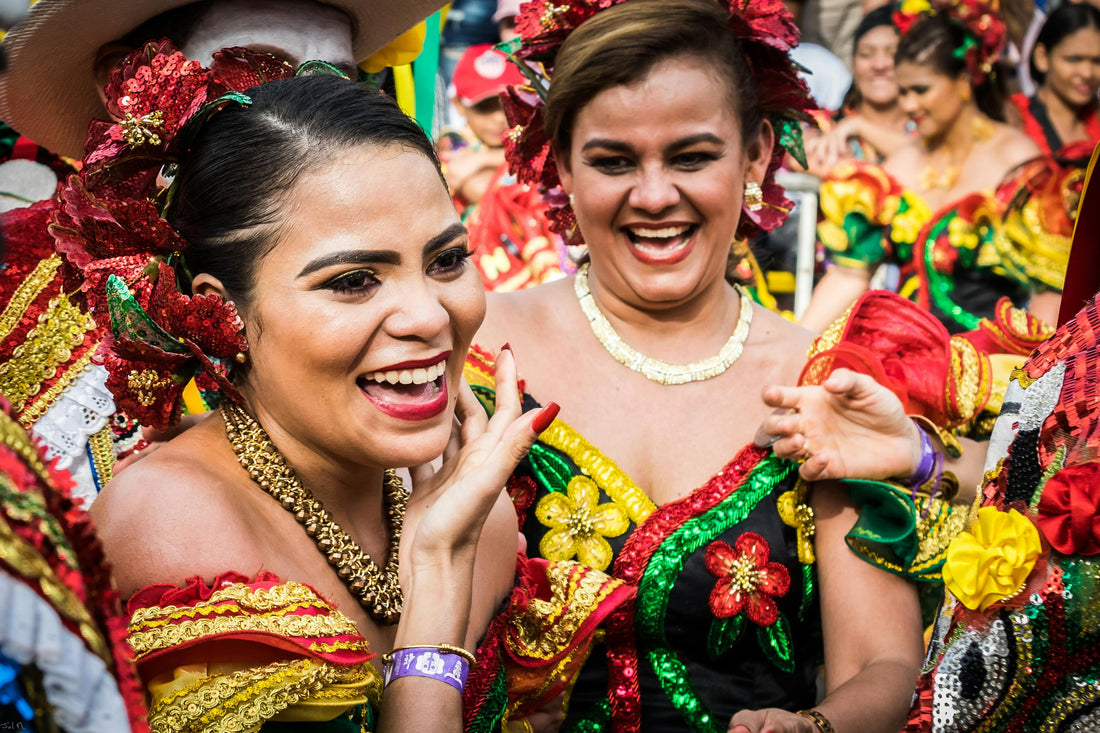
30 Playful and Poetic Sayings That Define Colombian Spanish Humor
Share
Language That Laughs: The Soul of Colombian Expression
Colombian Spanish isn’t just a dialect—it’s a cultural symphony. It's expressive, colorful, full of rhythm, and perhaps most importantly, filled with a distinct sense of humor that dances on the edges of sarcasm, poetry, and street smarts. While textbooks might teach you how to conjugate verbs, it’s the Colombian expressions—those playful, poetic, and sometimes bizarre sayings—that give you a true sense of how Colombians feel, think, and connect with the world.
Sayings are mirrors of the soul. In Colombia, they reflect resilience, joy, mischief, and sometimes heartbreak—all with a clever twist. These expressions give language its texture and tone. They can turn an insult into a joke, a complaint into a proverb, and a mundane comment into a burst of laughter.
For anyone learning the language or simply wanting to sound more local, a resource like Colombian Spanish Essentials is essential. This bundle doesn’t just teach you the words—it teaches you the rhythm and logic behind how Colombians actually speak. With that in mind, let’s break down 30 of the most beloved and iconic sayings that show the playful side of Colombian Spanish.

1. Más perdido que turco en la neblina
Literally “more lost than a Turk in the fog,” this phrase paints a vivid image of someone totally clueless or disoriented. It's often used with good humor when someone is out of their depth or confused by a simple task.
Contextual use:
– ¿Y cómo te fue en la clase de contabilidad?
– ¡Uy, estaba más perdido que turco en la neblina!
2. El que tiene tienda que la atienda
Translates to “he who has a shop should take care of it.” It’s a reminder to take responsibility, used when someone neglects their duties or complains about the consequences of their own choices.
3. Dar papaya
This iconic expression means making yourself an easy target—whether for crime, criticism, or misfortune. “Dar papaya” is almost a national proverb. It’s not about fruit, it’s about street smarts.
4. No dar papaya
The golden rule in Colombian society. Always stay alert, don’t expose your weaknesses. A mantra for navigating both Bogotá traffic and workplace politics.
5. Se fue por la sombrita
Literally “he went through the shade.” It’s used when someone chooses to stay out of trouble or keeps a low profile. It has an undertone of wisdom and self-preservation.
6. Sacar la piedra
“To take out the stone.” This means to annoy or infuriate someone. It's commonly used when someone is getting on your nerves or pushing your limits.
7. Estar como una cabra
Borrowed from Spain, but widely used in Colombia to describe someone who’s a little bit “off.” It’s not necessarily negative—often it's said with affection or admiration for someone’s eccentricities.
8. Estar en la olla
Means to be in deep trouble—financially, emotionally, or just having a really bad day. You're "in the pot," and things are boiling over.
9. Hacer vaca
Literally “make a cow,” but it means to gather money collectively, like for a birthday party, gift, or group plan. It’s a symbol of communal culture and solidarity.
10. Estar tragado
From the verb tragar (to swallow), this means to be madly in love. You’re so deep in it, it’s like love has consumed you whole.
11. Coger la caña
Means to go along with something, often with hesitation. It could be accepting a challenge, a favor, or just letting something slide.
12. Estar como agua para chocolate
This steamy expression indicates someone is boiling with emotion, usually anger. It’s a poetic way of saying “watch out!”
13. Se le fueron las luces
Translated as “the lights went out on them,” this is said when someone has a mental blank, forgets something obvious, or just loses track.
14. Pilas pues
“Batteries on!” It's used to encourage alertness or to push someone to act quickly. It’s like saying “Let’s go!” or “Stay sharp!”
15. Estar en la luna
“To be on the moon.” A charming way to say someone is spaced out or distracted. Ideal for classroom or workplace banter.

16. Meter la pata
“To stick the paw in.” This classic idiom means to mess up or make a social blunder.
17. Tirar la toalla
Just like in boxing, this phrase means to give up. It often reflects frustration or emotional exhaustion.
18. Tener más cuento que Calleja
Calleja was a 19th-century Spanish publisher of moral fables. This expression refers to someone who’s full of tall tales or excuses.
19. Ser la tapa del congolo
A uniquely Colombian way to praise someone as the best of the best. It’s like saying “you’re the cherry on top,” but more local and flavorful.
20. Andar con la piedra en el zapato
“To walk with a stone in your shoe.” Describes someone who's visibly upset but not talking about it.
21. Más raro que un perro a cuadros
“Stranger than a checkered dog.” Ridiculously odd. This phrase exaggerates bizarreness in a comical way.
22. Irse por las ramas
Means to beat around the bush. Instead of going straight to the point, you're climbing trees.
23. Estar más feliz que lombriz
“Happier than a worm.” Rhymes and sings. It’s an innocent, childlike way to express pure happiness.
24. Cantar la tabla
“To sing the board” means to reprimand someone in detail, often when they’ve crossed the line. It’s a verbal lashing, but culturally rich.
25. Le falta un tornillo
This expression means someone is “missing a screw,” or not thinking straight—used humorously to describe eccentric or unpredictable behavior.
26. Caer como anillo al dedo
Something that “falls like a ring to the finger” is a perfect fit. It refers to good timing or a perfect match for a situation.
27. No tener pelos en la lengua
Means someone speaks their mind, directly and bluntly. It’s both a compliment and a warning.
28. Llover sobre mojado
“To rain on wet ground.” Used to express that things just keep getting worse. When it rains, it pours.
29. Bajar la caña
To criticize someone harshly, often with authority. It comes from cane harvesting—cutting down what's grown tall.
30. Irse de jeta
A dramatic way of saying “to fall flat on your face.” Humorous, physical, and very Colombian.
Why These Sayings Matter
These aren’t just linguistic decorations—they are everyday tools. People use them to complain about work, joke with friends, flirt, or deal with disappointment. They compress complex feelings into rhythmic, memorable lines. Each phrase carries history, humor, and emotional nuance.
But here's the key: understanding these expressions is not the same as using them correctly. That’s where a guide like Colombian Spanish Essentials becomes your best companion. It doesn't just list idioms—it walks you through when and how to use them naturally, helping you sound more like a paisa, costeño, or rolo, and less like a textbook.

Final Thoughts: The Melody of Everyday Speech
Colombians have a way of turning even a complaint into a proverb. These expressions aren’t just idioms—they're songs, jokes, survival tools, and social rituals all at once. They reveal a people who take life seriously… but not too seriously.
To truly connect with the Colombian spirit, don’t just learn what words mean—learn how they feel. Laugh with them. Play with them. Let them roll off your tongue like they do in Medellín or Cali. And above all, let their rhythm shape your understanding of what it means to live—and speak—with alegría.
